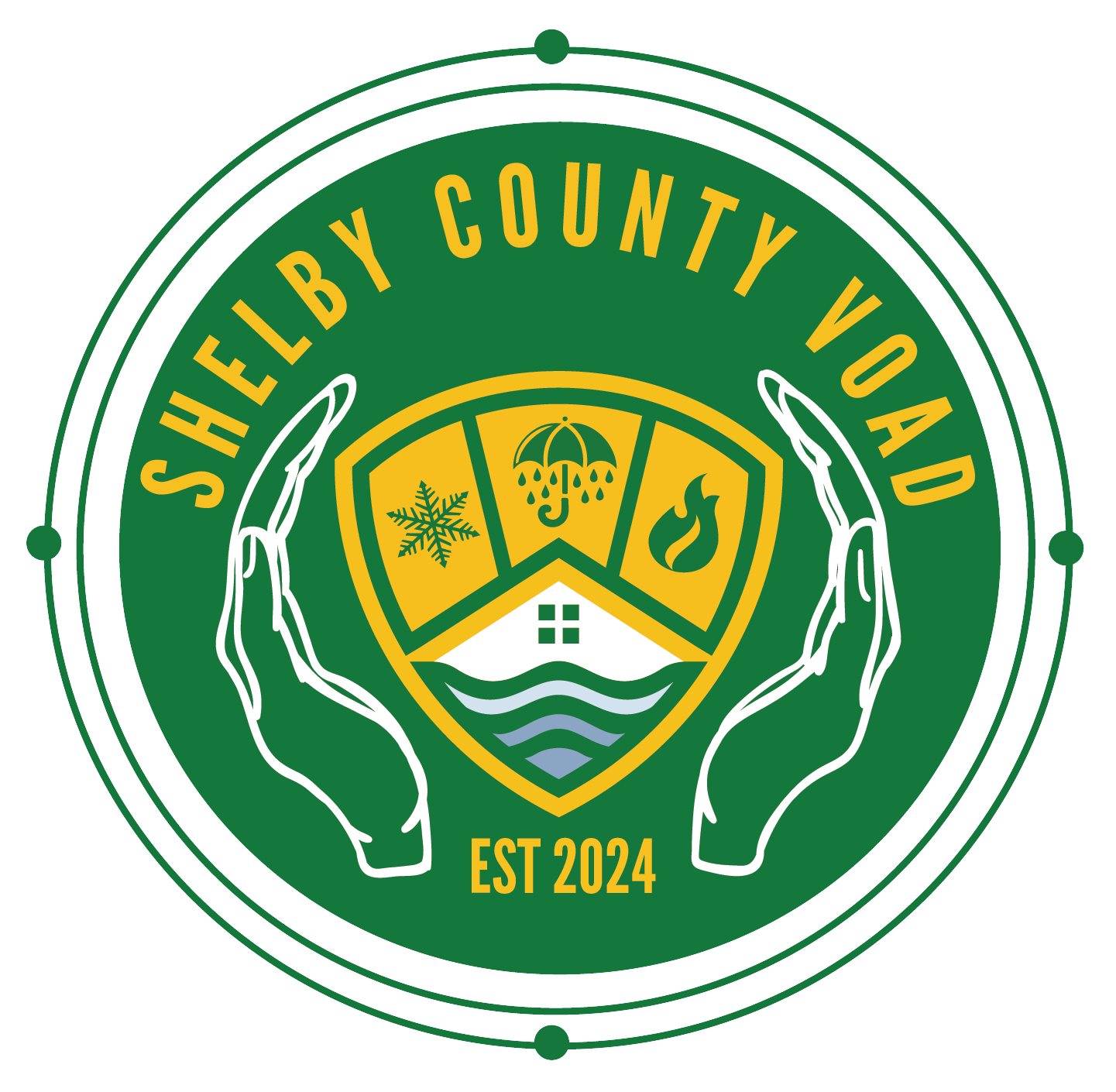In an unpredictable world, the best protection you can provide for your family is preparation. Natural disasters don’t wait, but you can be ready when they arrive. At the Shelby County region of the National Voluntary Organizations Active in Disaster (VOAD), we are dedicated to helping families and communities prepare for emergencies, reduce risks, and recover stronger. This guide walks you through the essential steps to build a plan, stay informed, and make preparedness a part of your family’s everyday life. A few proactive steps can make all the difference in keeping your loved ones safe, resilient, and ready for whatever comes their way.
Preparedness Starts at Home: Build a Plan, Stay Informed, and Keep Your Family Safe

A well-stocked emergency kit can be invaluable during a disaster, giving you and your family the basic supplies needed to stay safe and comfortable. Your kit should be tailored to meet your family’s unique needs and accessible at all times.
Essential Items to Include:
- Water and Food – Store at least a three-day supply of water (one gallon per person per day) and non-perishable food.
- First Aid Kit and Medications – Include a complete first aid kit, necessary prescriptions, and any essential over-the-counter medications.
- Personal Items – Hygiene products, sanitation supplies, and baby or pet supplies if needed.
- Emergency Tools – Flashlights, extra batteries, a manual can opener, local maps, and a whistle for signaling.
- Important Documents – Store copies of personal documents like IDs, medical information, and insurance policies in a waterproof container.
By building a preparedness kit, you’re not only ensuring your family’s immediate needs are met but also helping reduce stress during an emergency. Keep your kit in a convenient, easily accessible place and check it annually to replace expired items.

An emergency plan outlines the steps your family will take during a disaster and ensures everyone knows how to respond. Start by discussing what to do in different types of emergencies and practicing your plan regularly.
Key Steps for Making a Family Emergency Plan:
- Identify an Emergency Contact – Choose someone outside your area who can act as a central contact for family members to call in case of separation.
- Create an Evacuation Route – Identify safe escape routes from your home and neighborhood, and plan where you will go if you need to evacuate quickly.
- Know Your Local Shelter Options – Familiarize yourself with local shelters and evacuation centers that may open during a disaster.
- Plan for Special Needs – Consider any unique needs of family members, such as mobility issues, medical devices, or pets.
An emergency plan prepares your family to act swiftly and minimizes chaos. The goal is to ensure everyone is safe, accounted for, and knows where to find help if needed.

During an emergency, having accurate and up-to-date information is essential. Being informed allows you to respond appropriately to changing situations and helps you avoid unnecessary risks.
Ways to Stay Informed:
- Sign Up for Alerts – Register for local and national emergency alerts and weather warnings on your phone, through the news, or via local radio stations.
- Know Key Contacts – Have a list of emergency contact numbers and know how to reach local authorities, utilities, and emergency services.
- Follow Reputable Sources – Stay tuned to official channels like NOAA, FEMA, and local authorities for accurate and timely information.
Staying informed about potential risks and threats allows you to protect your family before, during, and after a disaster. Knowledge can be one of your best defenses in an emergency.
DISASTERS COMMON IN TENNESSEE


